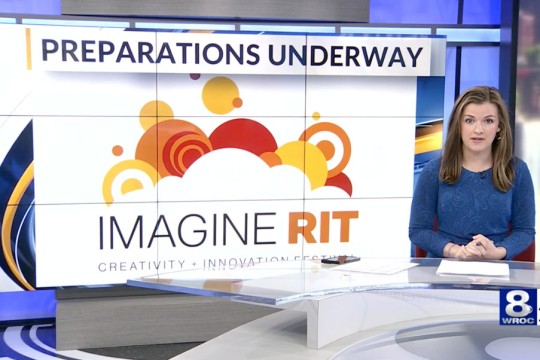RIT Launches Minor in Sustainable Product Development
Growing student interest in sustainability engineering is impetus for new program
The new minor targets students interested in exploring strategies for developing and delivering sustainable product systems. The minor will enhance students’ understanding of the three dimensions of sustainability—economic, ethical and environmental—and it will increase their awareness of the need for sustainable approaches to product development, according to Andres Carrano, RIT associate professor of industrial and systems engineering and a co-creator of the minor.
“The primary goal of this program is to develop awareness of how and to what scale engineering decisions cause environmental and societal impact,” Carrano explains. “In addition, students will gain experience with tools and methodologies that address these issues and allow them to make informed engineering decisions.”
Carrano and Brian Thorn, an RIT associate professor of industrial and systems engineering, advise students in the minor, as well as those who are members of RIT’s student chapter of Engineers for a Sustainable World, which began last year.
The 20-hour minor, open to undergraduates in engineering and related fields, includes three core and two elective courses that can be chosen from engineering, engineering technology, public policy and business. For more information, visit www.rit.edu/ise/minors/SPD/index.html. For more about the RIT student chapter of Engineers for a Sustainable World, visit http://www.rit.edu/ise/ESW.
Note: Sustainability refers to providing for the needs of the world’s current population without compromising the ability of future generations to meet their needs. Originally pertaining to natural resources, sustainability today applies to a variety of disciplines—including economic development, energy, the environment, food production, engineering, science and technology, and more—with a goal of achieving long-term viability.














